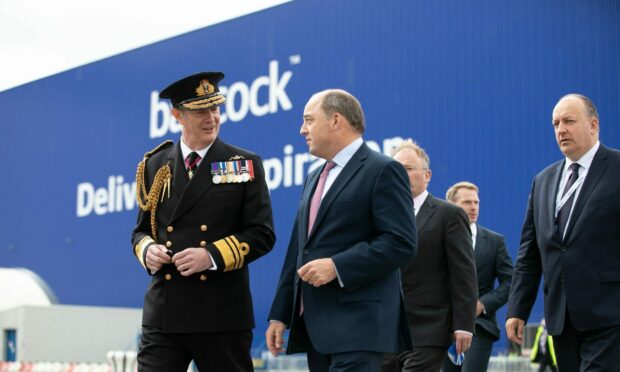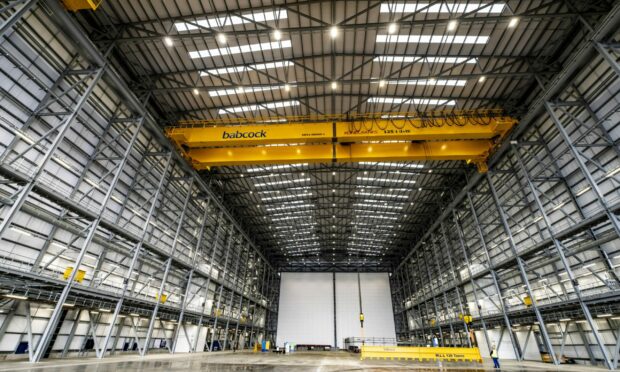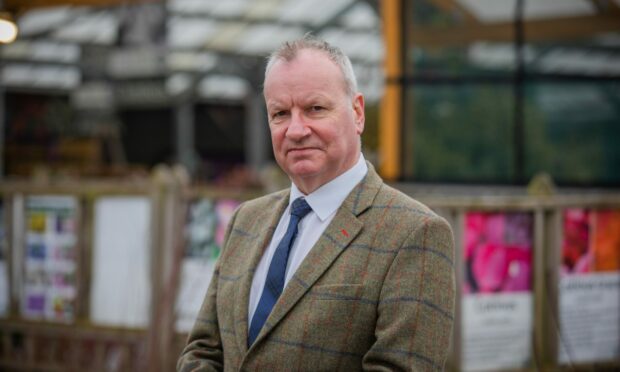MPs have demanded answers from the UK Government over the future of thousands of jobs at Rosyth and other Scottish shipyards.
Members of the Scottish Affairs Committee made the plea after doubts emerged about a £2.5 billion plan to build five new Type 32 frigates at Rosyth in Fife.
The work was supposed to begin in 2028 but recent reports have suggested the contract could be axed.
In a new report published on Friday morning, the MPs on the committee challenged the UK Government to confirm whether the Ministry of Defence still intends to order the Type 32 frigates, as previously set out.
And it asked whether the timeline for the Type 32s has changed as a result of concerns about the affordability of the initial plans.
They also asked ministers to set out why another recent £1.6 billion contract for the construction of three naval support ships had gone to an international consortium – which will see some of the building work take place in Spain.
Warship orders
The committee views the contract award as “an example of a shift in the UK Government’s approach to warship procurement”.
That deal will see some of the construction work being carried out at the Navantia shipyard in Cadiz.
“The UK Government’s decision appears to prioritise short-term savings over longer term economic gains for Scotland and the rest of the UK,” the committee said.
Pete Wishart, chairman of the Scottish affairs committee and MP for Perth and North Perthshire, said military shipbuilding was a “major Scottish success story”.
He said: “From Rosyth to Glasgow, we have military shipbuilding hubs that boost local economies and invest in skills and training.
“The recent announcement that Type 26 frigates will be built by BAE Systems in Glasgow is a major vote of confidence in the Scottish shipbuilding sector.
“However, UK Government policy on military shipbuilding ebbs and flows.
“On the one hand, ministers are championing the skill and expertise the military shipbuilding sector thrives on in Scotland.
“But on the other, its policies have opened up the ‘offshoring’ of warship production to other countries.
‘Boost for UK’
UK Defence Secretary Ben Wallace has previously said that awarding the contract to Team Resolute would be a “significant boost to the UK’s historic shipbuilding industry”, with work to be done in Belfast and at Appledore in Devon.
The Ministry of Defence spent £1.11 billion on shipbuilding in Scotland in 2020-21 – supporting some 7,700 jobs in the industry.
While the MPs said “the days of feast and famine must not return” for Scottish yards, they added that there “remains some uncertainty about the pipeline in the 2030s and 2040s”.
Their report insisted: “The Scottish shipbuilding industry should not be given cause to doubt that it will have a consistent order book in the future, so long as it continues to deliver on its commitments to its government customers.”
A shift in approach from the UK Government means it is “no longer the default position that warships will be designed and built fully in the UK”, the committee said.
It added that this is “of concern to some in the Scottish military shipbuilding sector”.



Conversation